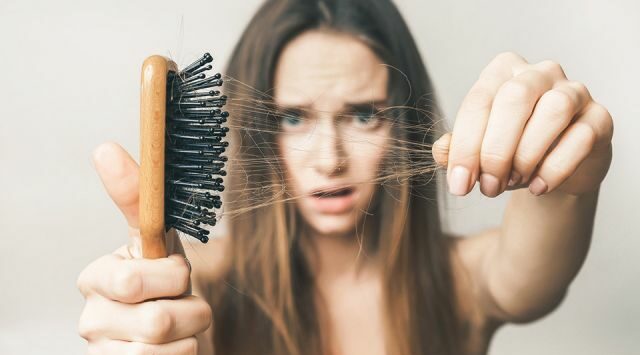Is the shampoo you use a reason for your hair fall? Know here
Does shampoo cause hair loss? Not all shampoos may cause hair loss or damage your hair. It depends on the product’s formulation.
When you notice excessive hair fall while shampooing, you immediately think of changing the shampoo. But does shampoo cause hair loss? It seems counterproductive to everything they stand for and claim. Here are a few things you may want to consider.
Not all shampoos may cause hair loss or damage your hair. It depends on the product’s formulation, which depletes the scalp of natural oils and damages your hair. Hair loss can also be caused by how often you shampoo and how much shampoo you use. Read on to learn what ingredients to avoid in shampoos to prevent hair loss.
Anecdotal reports also link some common shampoo ingredients to hair loss, but these claims have yet to be proven. It’s been suggested that both sulfates (cleansing agents) and formaldehyde (a preservative) can contribute to hair loss. To date, no research backs up these claims. That said, both sulfates and formaldehyde, along with a number of other chemicals often used in shampoo, could potentially lead to other types of hair damage.
Listed here are some ingredients that might lead to hair damage.
- Sulfates
Sulfates provide that telltale lathering effect in shampoos. But while they’re effective cleansers, they can irritate sensitive hair and skin.
Sudsy sulfate-based shampoos strip natural oils from fine or dry hair even more easily, leaving your strands brittle and at risk of breakage. Broken strands could even give the appearance of hair loss.
- Formaldehyde
You’ll often find this ingredient in keratin-based hair products designed for straightening or smoothing. The products, although marketed as formaldehyde-free, often contain heat-triggered formaldehyde releaser preservatives, like DMDM hydantoin.
The Food and Drug Administration (FDA) released a consumer update to address this and inform the public of the risks of formaldehyde exposure. While hair loss wasn’t listed among the potential risks, severe scalp irritation can, in some cases, lead to hair loss.
While scientific evidence has yet to find support for DMDM hydantoin as a cause of hair loss, a number of class-action lawsuits have been filed against companies that manufactured products with DMDM hydantoin.
- Sodium Chloride
Sodium chloride, also known as table salt, is used as a thickener in shampoos. It might dry out your hair and scalp and cause eye irritation and itchy scalp. High concentrations of sodium chloride can also cause hair loss
- Propylene Glycol
Propylene glycol acts as a humectant and helps nutrients penetrate your scalp. However, it can irritate your scalp. If you cannot find shampoos without this ingredient, go for products with a low concentration of propylene glycol.
- Alcohol
Stearyl, cetearyl, and cetyl alcohols are found in many shampoos. These alcohols are very drying and might strip the natural oils of your hair. Thus, use shampoos with less concentration of alcohol.
- Phthalates
Phthalates are added to shampoos and cosmetics as perfume fixatives or solvents. The impacts of Phthalates are similar to that of artificial fragrances. Even these solvents may negatively affect your scalp and hair health by interfering with your hormonal systems, causing excessive hair loss. Moreover, these are also malicious to the atmosphere.
Tips to prevent excessive hair fall while shampooing
Below are some vital tips that may help you prevent excessive hair fall while shampooing :
- The first and probably the most crucial step in stopping hair fall is to know your exact hair and scalp type.
- Create a proper hair care regimen that suits your scalp, hair type, and concerns.
- Before every hair wash, remember to massage your scalp with hot oil, such as coconut oil, jojoba oil, argan oil, almond oil, etc.
- Always opt for a sulfate-free shampoo that is gentle and mild, especially on your scalp.
- Never brush your hair wet or while in the shower. Your hair strands are the weakest when wet. Brushing in that condition will only make you lose more hair than usual.
- Always apply your hair conditioner after every single hair wash. A good hydrating conditioner seals in moisture and reduces the chances of hair fall, dryness, and damage. Also, check the ingredients of your hair conditioner. It should contain natural oils, butter (like mango butter, shea butter), hydrolyzed keratin, etc., which helps to make your hair stronger.
- Use hair care products that contain Vitamin B5 and Vitamin E.
- Once you have dried your hair, use a soft brush and lightly comb your hair.
- Put a limit on the usage of heating and styling products and tools, like a curling rod or dryer, on your hair.
- Avoid tight hairstyles and accessories that may pull or bind your hair roughly or uncomfortably. Doing so regularly or for long time intervals will damage your hair roots, causing more hair loss.
When to Consult a Doctor?
If none of the mentioned tips work and you continue to notice severe hair loss, reach out to a healthcare professional or trichologist (hair expert). Seeing a hair expert sooner rather than later will largely help you identify the actual cause of your excessive hair loss. This, in turn, will help you to develop and start the required specific treatment to combat further hair loss and steps to remedy it.
Factors Other Than Shampoo That May Cause Hair Loss
Although the ingredients present in shampoo may lead to hair fall, there are some other factors that may cause hair loss, including the pH level in shampoo 5. These potentially include –
- hormonal changes
- diet changes
- nutritional deficiencies
- hereditary issues
- any ongoing illness
- other medical troubles
- medications
- excessive stress
- severe weight loss, weight gain, etc.




 Kalinga AI
Kalinga AI